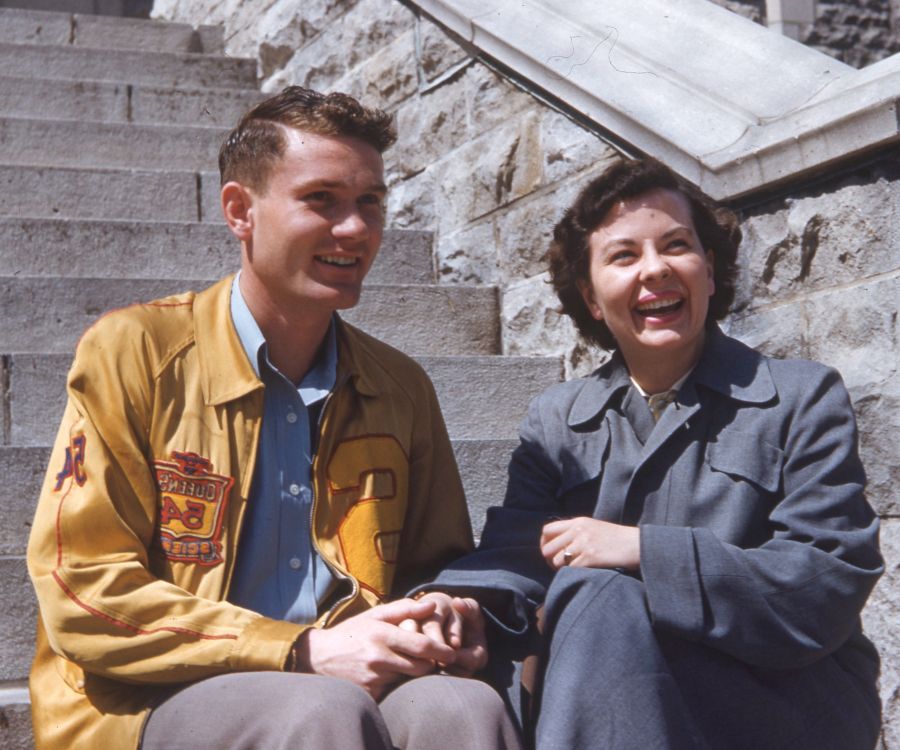We are passionate about working, teaching, and researching in one of the most dynamic and relevant fields of study today. From your cell phone to your power supply to the device you are reading this on - you are witnessing the work of electrical and computer engineers.
Recognized nationally and internationally, at Queen’s Electrical and Computer Engineering (ECE), we pride ourselves on the excellence of both our teaching and our research, as well as the strong connection we have with our students. Our faculty, staff, and students are a diverse collection of individuals who come from all parts of the globe. The common thread that binds us is that we learn, teach, and research ECE.
We set our students up for success with a direct and personal educational experience. Major employment surveys indicate that demand for engineering graduates remains high and that engineers are among the highest paid of all new university graduates.
 Since 1983, Walter Light Hall has been home to the Department of Electrical and Computer Engineering at Queen's. The seven-story building, made possible by a grant from the estate of the late Joseph S. Stauffer, was named after Queen's Electrical Engineering graduate Walter F. Light, Sc'49.
Since 1983, Walter Light Hall has been home to the Department of Electrical and Computer Engineering at Queen's. The seven-story building, made possible by a grant from the estate of the late Joseph S. Stauffer, was named after Queen's Electrical Engineering graduate Walter F. Light, Sc'49.
Light retired in 1984 but went on to chair the Canadian Government's International Trade Advisory Committee. In 1986, he received the Order of Canada. Light also chaired the Board of Trustees at Queen's from 1985 to 1990. Light, born in Cobalt, Ontario in 1923, joined the Royal Canadian Air Force and served overseas in WWII. At the end of the war, he arrived on campus at Queen's determined to become an engineer. Upon graduation, he was hired by Bell Canada and quickly worked his way up the ladder, becoming President of Northern Telecom in 1979. During his time as president, Light developed the "Digital World" vision, which stated that digital technology would be the standard of the future, furthering Nortel's command over the digital technology world.
Through his work with Queen's, Light developed the Walter Light Scholar Program, which allows departments in Smith Engineering to hire bright, young scholars 3-5 years before a senior faculty member retires. The endowment is used to bridge the gap in funding during that span. In the Department of Electrical and Computer Engineering, Walter Light Scholar winners have been Dr. Naraig Manjikian and Dr. Li Shang.
Light died in 1996, but his legacy lives on with Walter Light Hall, the centre of the Department of Electrical and Computer Engineering at Queen's University.
The Department is part of the Stephen J.R. Smith Faculty of Engineering and Applied Science at Queen’s University. Smith Engineering is changing the face of engineering education, so future engineers can be leaders in the face of complex and multidisciplinary global issues, building on four key pillars:
Problem-based, experiential learning oriented toward the world’s grand challenges.
A transformative approach to engineering education needs to incorporate problem-based learning across the program to ensure students engage with others and develop novel, technically sound solutions to a broad range of societal challenges in an ethical, sustainable, and humanistic way.
A humanistic approach to engineering.
A human-centered mindset will be cultivated in students and faculty to frame problems, ensuring that knowledge and creativity are brought to solutions that will have the greatest impact, recognizing and driving “problem-solution” fit through observation, insight and empathy.
Alongside students’ grounding in fundamental and applied sciences, Smith Engineering needs to incorporate a systematic inclusion of social science and humanities knowledge.
Competency-based education to ensure subject mastery.
Program-wide competency-based education must communicate progression to students on their competence, allow students to articulate their abilities to employers and ensuring that all graduating students possess the required knowledge and skills.
This fundamental shift can provide ongoing feedback to students on their progress toward meeting all program requirements, and repeated opportunities to improve at an individualized pace, and will significantly help students articulate their skills to employers.
Experiential learning where students learn through practice.
A new model of education must provide all our students with innovative professional development and experiential learning opportunities and ensure that community and industry insight is embedded into curricular and extra-curricular experiences.
What is needed is an approach that provides significant relationship and experience within industry.